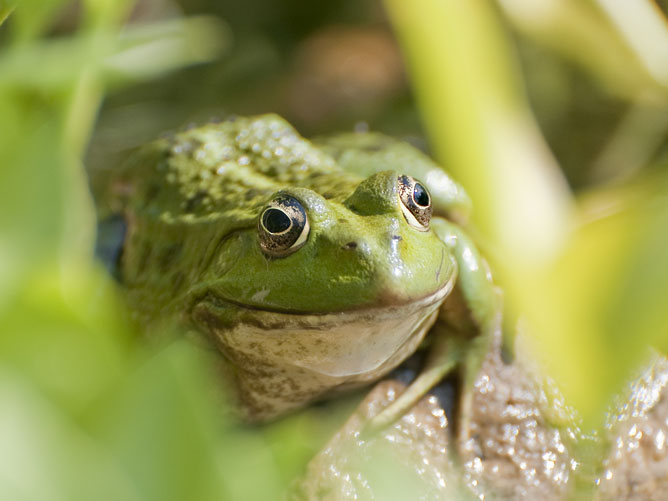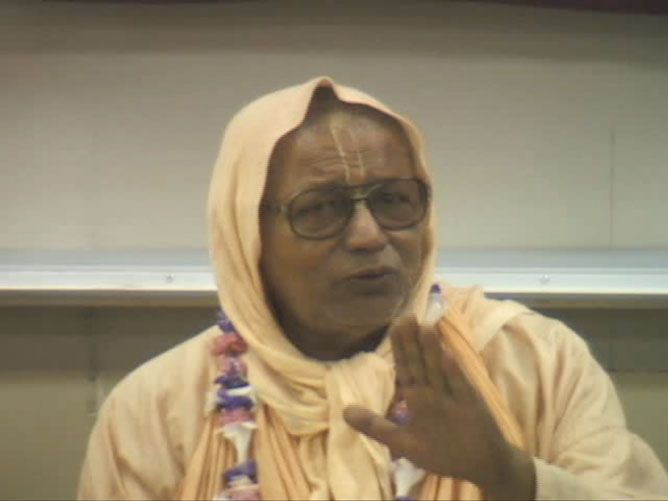WISDOM STORIES
A FROG’S HALF-RUPEE
The futility of worldly wealth, control, and attachment.
Adapted from a fable by Srila Bhakti Siddhanta Saraswati Thakur

Once upon a time, a frog lived beside a pond. One day, the frog happened to land on a half-rupee coin. The frog immediately thought, “Am I not now the richest person in the world? And am I not now the rightful controller of everything around me? The next time the king’s elephant comes to my pond to drink water, I am going to tie him up. I will not let him drink even a drop of water.”
Thinking in this way, the frog sat tightly atop the half-rupee coin beside the pond. Soon enough, the king’s elephant was brought down to the pond for his daily drink of water. Seeing this, the frog quickly jumped off the half-rupee coin towards the elephant thinking it could stop the elephant from moving any further. In an instant, however, the frog lost its life as it was trampled under the elephant’s feet.
PURPORT
The frog is our ego. Ego is defined in Srimad Bhagavad-gita (3.27) as considering ourselves the doer: considering ourselves independently capable of action and entitled to the fruits of our actions. When we are deluded by ego, we think we are rightful enjoyers, we pursue our own gain regardless of the consequences it may have for others, and we never consider whether we have a responsibility to act in accord with a whole greater than ourselves.
The half-rupee coin represents our body, wealth, and other worldly resources. Although we didn’t create them and they don’t actually belong to us, we claim them as our own just as the frog claimed the half-rupee. We then become proud of what we can do with them and seek to exercise that power in our environment. As the frog considered itself rich after landing on the half-rupee although it had in fact attained very little, so we consider our present standing in the environment to be very great although within the infinite, it is actually very small.
The elephant represents time. It is impossible for a frog to stop an elephant from passing by, but the frog deluded by ego nevertheless attempted to do this. Similarly, we try to ward off the inevitable impermanence of everything in our present environment even though it is impossible. We think we can find lasting happiness by attaining and maintaining temporary things, but ultimately we ourselves fall prey to the force of time. The frog meeting its death as the elephant effortlessly walks by teaches us that our ego’s dreams of worldly happiness are invariably crushed by the force of time.
The phrase ‘a frog’s half-rupee’ is an expression in Bengali which connotes an insignificant amount of wealth hoarded very cautiously and proudly by a poor person.








